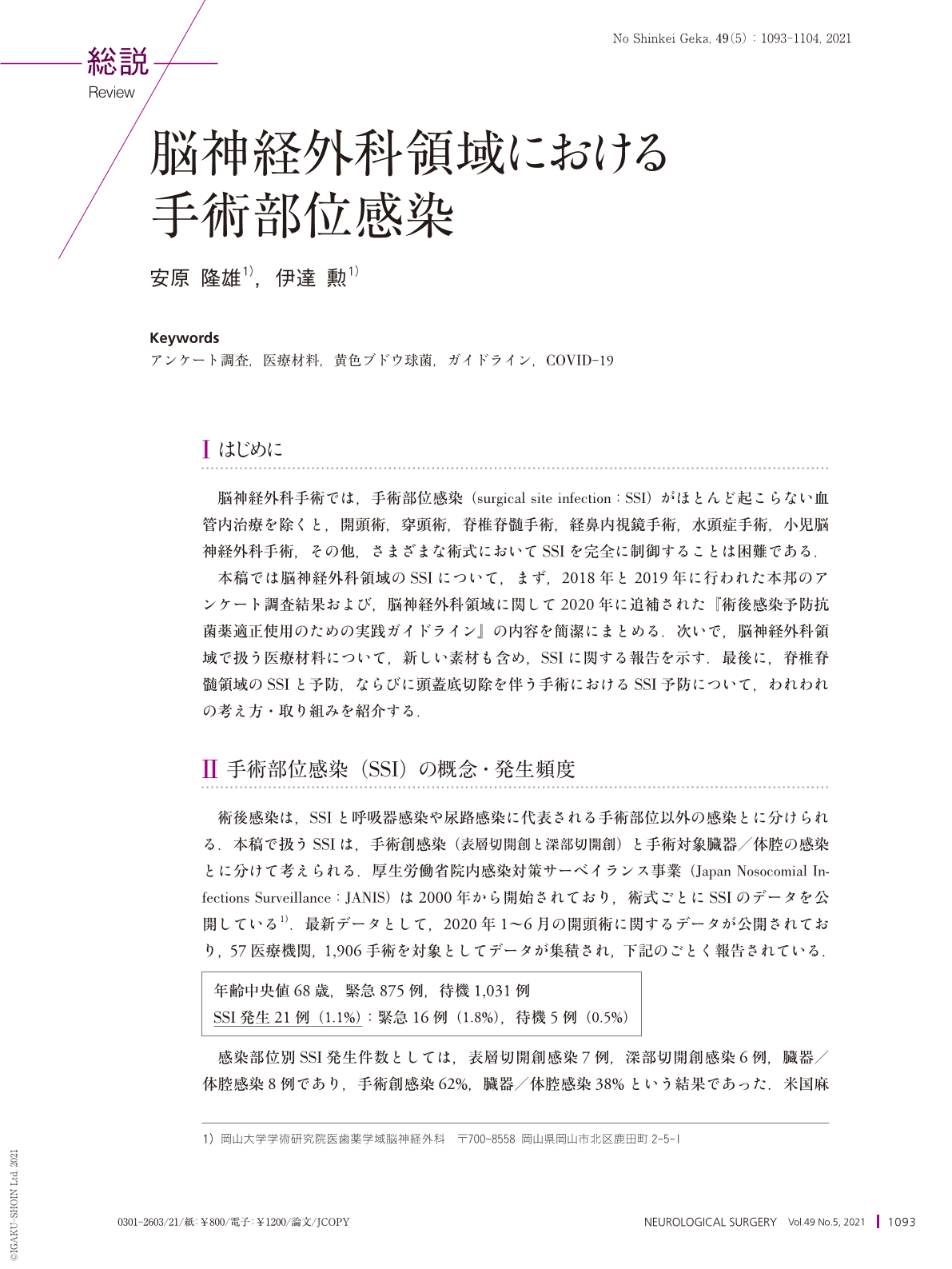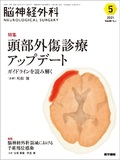Japanese
English
- 有料閲覧
- Abstract 文献概要
- 1ページ目 Look Inside
- 参考文献 Reference
Ⅰ はじめに
脳神経外科手術では,手術部位感染(surgical site infection:SSI)がほとんど起こらない血管内治療を除くと,開頭術,穿頭術,脊椎脊髄手術,経鼻内視鏡手術,水頭症手術,小児脳神経外科手術,その他,さまざまな術式においてSSIを完全に制御することは困難である.
本稿では脳神経外科領域のSSIについて,まず,2018年と2019年に行われた本邦のアンケート調査結果および,脳神経外科領域に関して2020年に追補された『術後感染予防抗菌薬適正使用のための実践ガイドライン』の内容を簡潔にまとめる.次いで,脳神経外科領域で扱う医療材料について,新しい素材も含め,SSIに関する報告を示す.最後に,脊椎脊髄領域のSSIと予防,ならびに頭蓋底切除を伴う手術におけるSSI予防について,われわれの考え方・取り組みを紹介する.
Although surgical site infections(SSIs)are usually controllable, their occasional occurrence is unavoidable. SSIs in neurosurgery comprise surgical-wound infections and surgical-organ/space infections. Data from the Japan Nosocomial Infections Surveillance revealed an overall infection rate of 1.1% during the first half of 2020. Responses to two questionnaire-based surveys on SSI prevention and complications related to cranial implant/artificial bone revealed the real world situation in neurosurgery. In 2020, neurosurgical information was added to the practical guidelines concerning the proper use of prophylactic antibacterial drug for SSIs. COVID-19 hygiene control protocols may have reduced the incidence of SSIs. It may be prudent to continue this stringent hygiene control after the COVID-19 pandemic has abated. Information of medical material on SSI is presented in this article, including the Plus suture®, DuraGen®, DuraSeal®, Adherus®, ultra-high-molecular-weight polyethylene(SKULPIO®, CRANIOFIT-PE®), Bioglide® and Bactiseal® shunt systems, and olanexidine. Minimizing SSIs requires proper knowledge on infection control, taking care while performing neurosurgical procedures, and compassion for the patients. In addition, information and material must be updated over time.

Copyright © 2021, Igaku-Shoin Ltd. All rights reserved.


